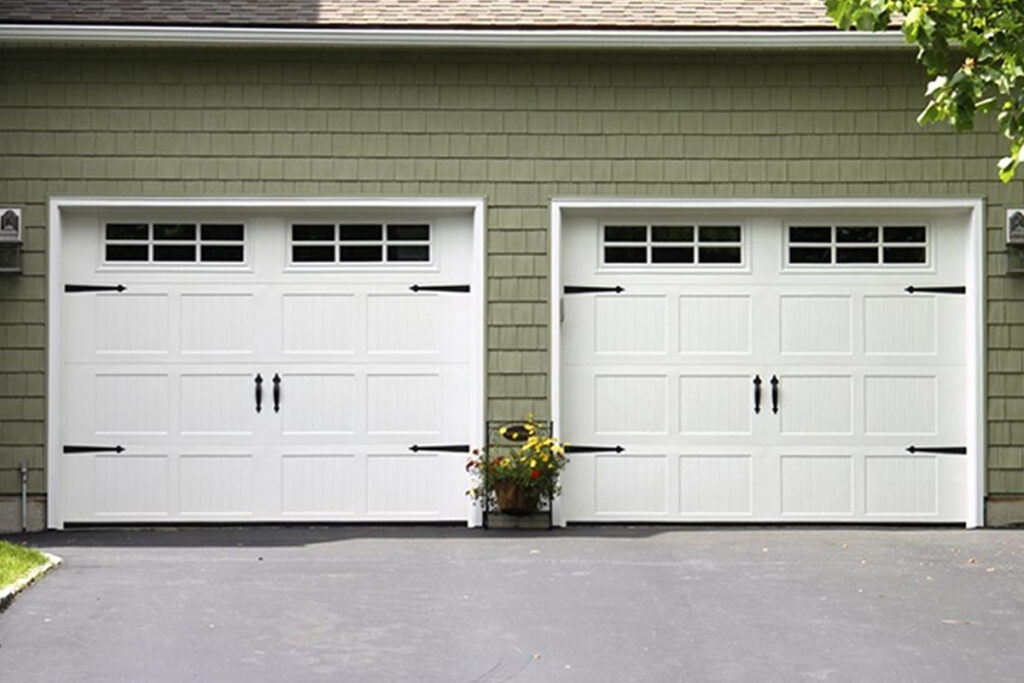Dealing with a Garage Door Repair Parker CO can be a nuisance, but fortunately, there are several effective methods to silence those annoying noises and restore smooth and quiet operation to your garage door.

In this comprehensive guide, we’ll explore various techniques and strategies for eliminating garage door squeaks, from simple maintenance tasks to more advanced adjustments. By following these steps, you’ll be able to enjoy a quieter garage door and a more peaceful home environment.
1. Identify the Source of the Squeak
Before you can address the squeaking issue, it’s essential to identify the source of the noise. Squeaks can originate from various parts of the garage door system, including the hinges, rollers, tracks, springs, and opener mechanism. Take some time to inspect the door carefully and listen for the source of the squeaking noise. This will help you determine which components need attention and the best approach for addressing the problem.
2. Lubricate Moving Parts
One of the most common causes of garage door squeaks is friction between moving parts. Over time, hinges, rollers, tracks, and other components can become dry and rusty, leading to squeaking and sticking. To resolve this issue, lubricate the moving parts of the garage door with a high-quality garage door lubricant or silicone-based lubricant. Apply the lubricant generously to hinges, rollers, tracks, springs, and other metal-to-metal contact points to reduce friction and eliminate squeaks.
3. Tighten Loose Hardware
Another common cause of garage door squeaks is loose hardware, such as screws, nuts, bolts, and brackets. Loose hardware can cause parts of the garage door system to vibrate and rub against each other, resulting in squeaking noises. To address this issue, inspect the hardware on the garage door and tighten any loose screws, nuts, or bolts using a screwdriver or wrench. Pay particular attention to hinges, brackets, and other hardware that may have become loose over time.
4. Replace Worn or Damaged Parts
If lubricating and tightening the hardware doesn’t eliminate the squeaking noise, it may be necessary to replace worn or damaged parts of the garage door system. Over time, hinges, rollers, tracks, and other components can wear out or become damaged, leading to increased friction and squeaking. Inspect these parts carefully and replace any that show signs of excessive wear, rust, or damage. Be sure to use high-quality replacement parts that are compatible with your garage door system.
5. Adjust the Garage Door Springs
Garage door springs play a crucial role in the smooth and balanced operation of the door. If the springs are worn, damaged, or improperly adjusted, they can cause the door to squeak and operate erratically. Inspect the springs for signs of wear or damage, such as rust, corrosion, or deformation. If necessary, adjust the tension of the springs according to the manufacturer’s instructions or seek assistance from a professional garage door technician. Properly adjusted springs will help reduce friction and eliminate squeaks.
6. Inspect and Clean the Tracks
The tracks are another potential source of garage door squeaks, especially if they are dirty, rusty, or misaligned. Inspect the tracks for debris, dirt, and rust buildup, and clean them thoroughly using a stiff brush or cloth. Ensure that the tracks are properly aligned and free from obstructions that could cause the rollers to bind or squeak. Lubricate the tracks with a silicone-based lubricant to reduce friction and ensure smooth operation.
7. Check the Opener Mechanism
In some cases, the garage door opener mechanism itself may be causing the squeaking noise. Inspect the opener for signs of wear, damage, or misalignment, and lubricate any moving parts according to the manufacturer’s instructions. If necessary, adjust the tension or alignment of the opener mechanism to ensure smooth and quiet operation. Consider upgrading to a newer, quieter garage door opener model if your current opener is outdated or worn out.
8. Test and Adjust the Balance
An unbalanced garage door can cause excessive wear and strain on the opener mechanism, leading to squeaking and other issues. Test the balance of the garage door by disconnecting the opener and manually lifting the door halfway open. If the door does not stay in place or feels heavy, it may be out of balance and require adjustment. Follow the manufacturer’s instructions or consult with a professional garage door technician to properly balance the door and eliminate squeaks.
Conclusion:
Dealing with a squeaky garage door can be frustrating, but with the right approach, you can silence those annoying noises and restore smooth and quiet operation to your garage door. By identifying the source of the squeak, lubricating moving parts, tightening loose hardware, replacing worn or damaged parts, adjusting the springs and tracks, inspecting the opener mechanism, and testing the balance of the door, you can eliminate squeaks and enjoy a more peaceful home environment. Whether you prefer to tackle the job yourself or enlist the help of a professional garage door technician, addressing garage door squeaks will improve the functionality and longevity of your garage door system.
Martin Garage Door
10411 S Parker Rd, Parker, CO 80134
1-303-663-1310

Leave a Reply